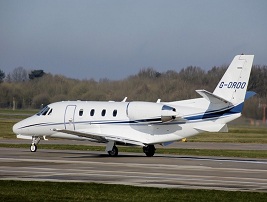
claymartins29
About claymartins29
A Comprehensive Study on Private Jets: Traits, Advantages, And Future Prospects

Private jets have develop into synonymous with luxury, exclusivity, and convenience. Over the past few many years, the private aviation industry has witnessed vital growth, driven by various components including globalization, increased wealth, and the demand for time-efficient journey. This report aims to provide an in-depth analysis of the private jet market, exploring its trends, benefits, challenges, and future prospects.
Overview of the Private Jet Business
The private jet trade encompasses the manufacturing, operation, and management of private jets. In line with the overall Aviation Manufacturers Affiliation (GAMA), the global business aviation market was valued at roughly $24 billion in 2020, with projections indicating regular development in the approaching years. The market consists of various segments, together with fractional possession, charter providers, and complete possession.
Types of Private Jets
Private jets might be categorized into a number of types primarily based on size and vary:
- Gentle Jets: These jets are perfect for brief journeys and typically accommodate 4 to 7 passengers. Examples embrace the Cessna Quotation Mustang and Embraer Phenom 100.
- Midsize Jets: Providing a stability between vary and capability, midsize jets can carry 6 to 9 passengers and are suitable for medium-haul flights. Notable fashions embody the Hawker 800XP and the Bombardier Learjet 60.
- Heavy Jets: Designed for lengthy-haul flights, heavy jets can accommodate 10 to 20 passengers. The Gulfstream G650 and Bombardier Global 7500 are examples of this class.
- Extremely-Long-Vary Jets: These jets, such as the Boeing Business Jet (BBJ) and the Airbus ACJ series, offer the best range and luxurious, making them appropriate for intercontinental travel.
Key Trends within the Private Jet Market
1. Elevated Demand for On-Demand Charter Providers
The rise of digital platforms has made it easier for patrons to e book private jets on an as-wanted basis. Firms like JetSuite, Wheels Up, and VistaJet have revolutionized the trade by offering flexible charter providers that cater to a diverse clientele.
2. Sustainability Initiatives
With growing considerations about climate change, the private aviation sector is more and more focusing on sustainability. Companies are investing in sustainable aviation fuels (SAFs) and exploring electric and hybrid aircraft applied sciences. The purpose is to cut back carbon footprints while maintaining operational effectivity.
3. Technological Developments
The combination of superior applied sciences in private jets has enhanced security, consolation, and efficiency. In the event you beloved this article and you would like to get more info with regards to privatejetcardreview.com i implore you to check out our webpage. Innovations such as improved avionics, enhanced cabin designs, and in-flight connectivity are becoming normal features in fashionable jets.

4. Post-Pandemic Recovery and Growth
The COVID-19 pandemic significantly impacted the aviation trade, however private jet travel noticed a resurgence as travelers sought safer options to industrial flights. The demand for private jets surged as businesses adapted to distant work and people prioritized well being and security.
Advantages of Using Private Jets
- Time Effectivity: Private jets permit travelers to avoid lengthy safety lines and boarding processes related to business flights. They will fly on to their destination, reducing travel time significantly.
- Flexibility: Private jet users can create custom-made itineraries, permitting for final-minute changes and multiple stops. This flexibility is particularly useful for business travelers with tight schedules.
- Privateness and Comfort: Private jets supply an unique environment, permitting passengers to conduct meetings, relax, or take pleasure in leisure actions without distractions from other travelers.
- Access to Remote Areas: Private jets can access smaller airports and remote areas that is probably not serviced by commercial airways, offering greater travel choices.
Challenges Facing the Private Jet Industry
Regardless of its many advantages, the private jet business faces a number of challenges:
- Excessive Operating Prices: The cost of owning and working a private jet may be prohibitive, including maintenance, fuel, insurance, and crew salaries. This limits access to wealthier individuals and corporations.
- Regulatory Hurdles: The private aviation sector is topic to stringent laws and compliance requirements, which may differ by nation. Navigating these rules may be complex and time-consuming.
- Environmental Impact: Whereas efforts are being made to cut back the carbon footprint, private jets are sometimes criticized for his or her environmental impression in comparison with business aviation. Addressing these considerations is essential for the trade’s long-term sustainability.
- Market Volatility: The private jet market can be vulnerable to economic fluctuations. Economic downturns can lead to decreased demand for private travel as corporations lower again on journey bills.
Future Prospects of Private Jets
The future of the private jet business appears promising, pushed by the following elements:
- Progress in Rich Individuals: The number of high-internet-value individuals (HNWIs) is predicted to rise, significantly in rising markets. This enhance will possible lead to higher demand for private aviation companies.
- Technological Improvements: Continued developments in aviation know-how, including electric and hybrid aircraft, are expected to boost operational effectivity and scale back environmental affect.
- Enhanced Customer Expertise: Companies are more and more specializing in providing customized services and luxury experiences to draw and retain clients. This trend will probably form the way forward for private aviation.
- Regulatory Help for Sustainability: Governments are starting to recognize the importance of sustainable aviation. Supportive insurance policies and incentives for the use of SAFs and inexperienced applied sciences could foster development within the sector.
Conclusion
The private jet industry is at a pivotal second, balancing the demand for luxurious travel with the need for sustainability and effectivity. As the market continues to evolve, stakeholders should navigate challenges whereas capitalizing on emerging traits. With a concentrate on technological advancements and a dedication to environmental accountability, the future of private jets holds important potential for progress and innovation. The business will probably remain an important component of the broader aviation landscape, catering to the wants of discerning travelers seeking comfort, flexibility, and exclusivity.
No listing found.

